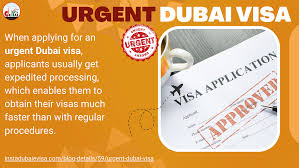The Schengen visa is a type of visa that allows individuals to travel within the 26 European countries that make up the Schengen Area. These countries have agreed to have open borders, allowing easy travel without needing multiple visas. The Schengen visa is intended for short-term stays, typically for tourism, business, or visiting friends and family.
Furthermore, it is possible to apply for a Schengen visa in a country where the applicant is not a resident. Some of the mandatory documents you will really require applying for a Schengen visa are: an NOC letter, proof of accommodation or hotel booking, proof of a flight reservation for visa, travel insurance for visa. In this blog post, we’ll talk about who can get a Schengen visa, how non-residents can apply, the pros and cons of using as a non-resident, and the documents and requirements non-residents need to meet a Schengen visa.
Eligibility For A Schengen Visa
To be eligible for a Schengen visa, applicants must meet specific criteria established by the European Union. These include:
A Valid Passport Or Travel Document:
The passport must be valid for three months after the anticipated Schengen Area departure.
Justification For The Purpose And Conditions Of The Intended Stay:
This could include a letter of invitation, proof of accommodation, and proof of sufficient financial means to support the visit.
Adequate Travel Medical Insurance:
This must cover the entire period of the planned stay and have a minimum coverage of €30,000.
Residence In The Country Of Application:
Moreover, Schengen visa applications are generally processed by the consulate or embassy of the country where the applicant resides. As noted in the introduction, non-residents can apply for Schengen visas.
No grounds for inadmissibility:
Applicants who have committed certain crimes or pose a security threat may be denied a Schengen visa.
Moreover, Note that Schengen visa requirements vary per nation. Consult the consulate or embassy of the country you plan to visit or apply for the latest visa requirements.
Applying For A Schengen Visa As A Non-Resident
As a non-resident, a few options for applying for a Schengen visa are available. These include:
Applying At The Nearest Consulate Or Embassy:
Non-residents can apply for a Schengen visa at the nearest consulate or embassy of the country they plan to visit. For example, if a non-resident in India wants to go to France, they can apply for a Schengen visa at the French consulate or embassy in India.
Applying Through A Third-Country Representation:
Moreover, some nations allow non-residents to apply for a Schengen visa at a third-country presentation, such as a Schengen embassy or consulate. This may be a good option for visitors from countries without consulates or embassies.
Applying Through A Visa Application Center (Vac):
In addition, some countries have designated visa Application Centres (VACs) where non-residents can apply for a Schengen visa. These centres are usually run by private companies and offer additional services such as document verification and submission.
Pros And Cons Of Applying For A Schengen Visa As A Non-Resident
Applying for a Schengen visa as a non-resident has both advantages and disadvantages.
Pros:
Can travel to multiple countries within the Schengen Area with one visa.
In some cases, the ability to apply through a third-country representation or visa Application Center (VAC).
Cons:
Non-residents may need to produce extra documents to show their ties to their country of residency and their travel reasons, making Schengen visa applications more difficult and time-consuming.
The application process may be more complex, and the acceptance rate may be lower than for residents.
The fees for the visa application may be higher for non-residents.
It’s essential to consider the pros and cons when deciding whether to apply for a Schengen visa as a non-resident and to be aware of any additional documentation or requirements that may be necessary. Your documents must include flight itinerary for visa, travel insurance, hotel reservation etc. It’s always recommended to check with the consulate or embassy of the country you plan to visit for the most up-to-date information on visa requirements and to start the application process in advance of your planned trip.
Conclusion
Lastly, people who don’t live in the Schengen Area can apply for a Schengen visa, which lets them travel between the 26 countries that make up the Schengen Area. Moreover, Non-residents can apply at the nearest consulate or embassy of the country they want to visit, through a representation in a third country, or sometimes at a Visa Application Center (VAC).visa
Furthermore, it is essential to note that the application process may be more complex and time-consuming for people who do not live in the country, and the acceptance rate may be lower than for those who do. Additionally, the fees for visa applications may be higher for non-residents.
In addition, Non-residents should review the eligibility criteria again, available options, and the required documentation before applying. Check with the country’s consulate or embassy for the latest visa requirements and start the application process early.
Read More Latest Articles: abbasblogs











